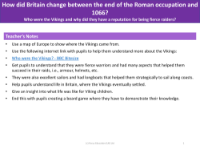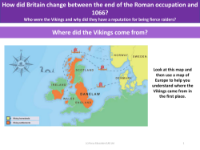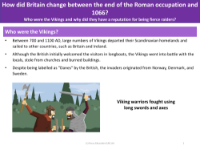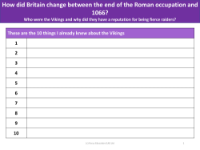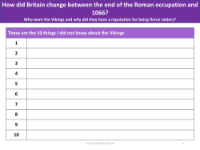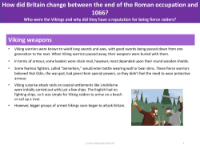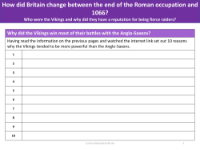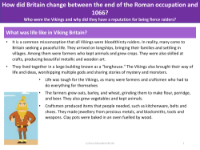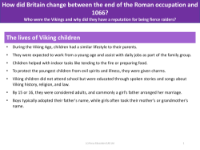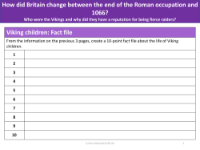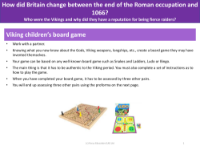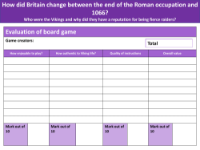Who were the Vikings and why did they have a reputation of being fierce raiders? - Presentation
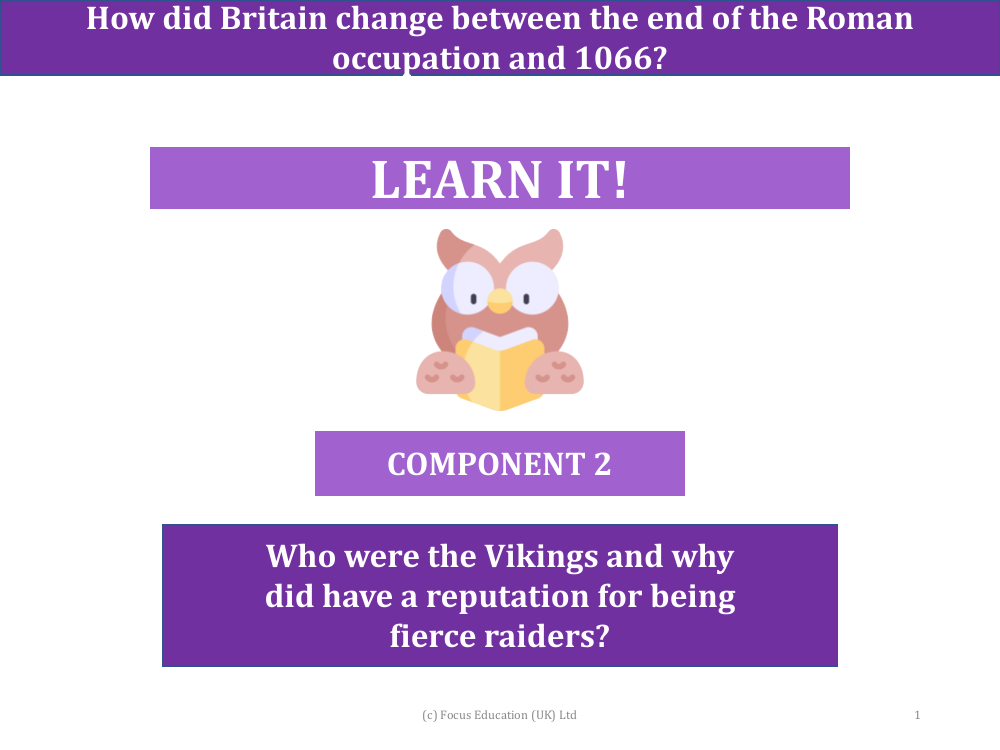
History Resource Description
The Vikings were seafaring people from the late eighth to early 11th century who originated from Scandinavia, which is now the countries of Norway, Denmark, and Sweden. Known for their formidable presence, they embarked on numerous raids across Europe, including Britain and Ireland. These Norse explorers, warriors, merchants, and pirates were notorious for their raids and battles, often targeting monasteries due to their wealth and lack of defences. Despite their reputation as fierce raiders, the term 'Viking' actually stems from the Old Norse word meaning 'a pirate raid'. While many Vikings did engage in violent conquests, others were peaceful settlers who were farmers, skilled craftsmen, and traders, contributing to the cultural and economic fabric of the societies they settled in.
The impact of the Vikings on Britain was profound, with their influence spanning political, cultural, and social aspects of life during that era. From around 787 AD, they began a period of violent interaction with the Anglo-Saxons, leading to significant changes in British society. The Vikings established settlements, particularly in the northern and eastern parts of England, known as the Danelaw. They also made their mark in Scotland, the Shetland and Orkney Islands, the Isle of Man, and founded the city of Dublin in Ireland. Their legacy includes place names ending in '-by', '-Thorpe', and '-ay', which are indicative of Viking origin. The Danelaw, for example, was an area of Viking settlement where they introduced their own laws and customs, and the city of York (Jorvik) became a major trading hub. Despite their initial success in battles, the Anglo-Saxons eventually reclaimed lost territories, with figures such as King Alfred the Great and his successors playing key roles in resisting Viking dominance.
